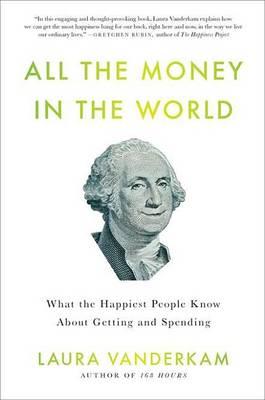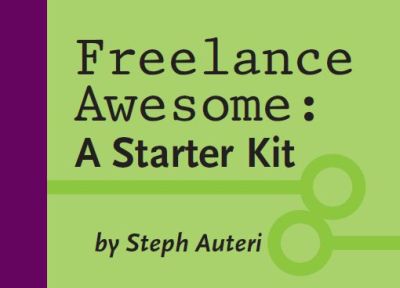How Do You Bribe Yourself Into Getting Busy?
25
How to Play the Waiting Game Just Right
16
Spill It: Are You a Terrible Self-Starter?
4
 Last week, I headed over to my local library to sit in on a meeting of the Toastmasters Club. When we went around the room to introduce ourselves, I admitted that I was on a panel at a major conference that coming weekend, that public speaking terrified me, and that I was hoping to pick up some pointers.
Last week, I headed over to my local library to sit in on a meeting of the Toastmasters Club. When we went around the room to introduce ourselves, I admitted that I was on a panel at a major conference that coming weekend, that public speaking terrified me, and that I was hoping to pick up some pointers.
So when it came time for impromptu, two-minute presentations, the master of ceremonies (the Toast Master?) asked me to take the first shot and talk about the presentation I was preparing for.
Fantastic.
I got up there and babbled incoherently for just under two minutes about ASJA, sex writing, the book I was working on, and promotional plans. It wasn’t terrible. But it was definitely unfocused, and I was obviously nervous.
(A few presentations later, a guy with fantastic biceps opened up his presentation by saying that my presentation was his favorite. But I’m pretty sure it’s because no one expects to come to the public library, attend a Toastmasters Club meeting, and hear somebody talk about sex.)
ANYway. At the end of the meeting, I received some more constructive feedback from the person tasked with analyzing each mini-speech, and one thing he said stuck out to me. “People tend to use filler words (stuff like uh and um) in the same way they clear their throat,” he said. “You feel unprepared, so you fill in those words while you gather your thoughts.”
It struck me then that my tendency toward extreme procrastination is much the same thing.
When I receive a new assignment or get the go-ahead on a new project, I don’t immediately start drawing up outlines and tracking down resources (as I probably should). Instead, I put the deadline into my Google Calendar and set up an email alert, so that I’ll be sure to start soon enough to meet my deadline.
Then, when that email shows up in my inbox, I hem and haw even further.
I do some spring cleaning of my Chrome bookmarks.
I decide the coffee table needs dusting.
The prospect of cleaning out the kitchen sink is suddenly attractive.
I draw up to-do lists, which make my already-existing to-do lists even more impossible to manage.
And I do all of this not because I’m a terrible freelancer who can’t be trusted to complete her work. (I always meet my deadlines.) I do this because… well… just don’t know how to start! I still need to gather my thoughts!
Some people recommend writing what Anne Lamott refers to as a “shitty first draft.” This is excruciating for me.
Other people (including me) advocate breaking a larger project down into smaller, more manageable tasks, so as to make it less overwhelming. I do this a lot of the time.
One of the things that helps me most is drawing up an outline. Once I have an outline down on paper, the rest of the assignment seems easy as pie.
What about you? Do you procrastinate? Do you suck at the self-starting?
How do you trick yourself into getting down to business?
Related: How to Break Through Your Work Block, Getting It Done
Why You Should Change Your Definition of Success
13
 I started freelancing full-time almost five years ago. At the time, success meant matching my previous income, and saying yes to every project that came my way. As a result, I found myself working nights and weekends, skipping meals, and pushing exercise to the very bottom of my to-do list, where it never got done.
I started freelancing full-time almost five years ago. At the time, success meant matching my previous income, and saying yes to every project that came my way. As a result, I found myself working nights and weekends, skipping meals, and pushing exercise to the very bottom of my to-do list, where it never got done.
These days, success means being pickier about projects, preparing home-cooked meals with my husband, and having time for both my personal book project and my daily yoga classes. I have the potential to make more money… but the other stuff comes first.
Which is why I love Laura Vanderkam‘s work. In both 168 Hours and her most recent book, All the Money in the World, she shows readers that they don’t necessarily need more time or money to achieve a successful and fulfilling life. They just need to know how to spend what they already have.
In this Q+A, Laura shows us how we should redefine success.
1. I went on a sort of Laura Vanderkam reading marathon last week. What I noticed immediately about both your books is that they eschew the typical self-help trope of promising more (more money, more time) to the reader. Rather, you stress in both books that, generally, we have enough. We just need to learn how to spend both our time and our money more wisely, rather than cutting back on things we enjoy as a means of grabbing 15 minutes here, $100 there. How did you come to this somewhat contrary conclusion?
I highly recommend Laura Vanderkam reading marathons. I’ve got some novels stuffed in a drawer that you can read as well…
To answer your question, with time that insight came from looking at successful people. I’m talking about people who have big careers and big personal lives. These people have the exact same amount of time as the rest of us, so what are they doing differently?
In some cases, these people do have more money, but plenty of people with money somehow manage to spend it on things that make their lives more complicated, rather than less. If you start with a blank slate, rather than various assumptions about how we should be spending our time and money, you’ll soon see that 168 hours a week and an average American income can cover quite a bit. I mean, who cares about spending 10 minutes less on errands if you’re in the wrong job? Then you’re wasting 40 hours a week. Fix that first. Then you can be as inefficient on your errands as you want.
2. I loved 168 Hours. Who doesn’t wish for more time? But when I read the press release for All the Money in the World, I was intrigued, because it hinted at the possibility that you don’t necessarily need to be making more money in order to be considered successful. A prospect I find attractive, as someone who values work/life balance over ever-increasing income. Can you share with us your own, personal definition of success?
My goal is to be able to write about any topic I find interesting for publications I admire and in my own books (and on my blog), and know that my words will find a big audience. Money is part of success — it’s how the market often recognizes talent — but you have to consider it within categories. You can be among the world’s best poets and still earn less than a mediocre investment banker.
3. When did you reach that aha moment where you realized that success didn’t have to mean more money? Was there a specific instance where you had to choose between saying yes to a project or yes to yourself?
In 168 Hours, I write of giving up a fairly well-paying gig with Reader’s Digest. I wrote the Only in America section for years. It was a fabulous way to learn to write tight, and to learn about an incredible diversity of subjects, from a young man who walked every street in Manhattan to the person who holds the world record for the most Guinness World Records. I’m so grateful that they gave me the chance to do that.
But what I eventually realized is that I wanted to be focusing on books and longer, bylined articles, and the mental energy required to write six to eight well-reported short pieces every month was distracting me from that goal. It was a tough gig to walk away from financially, but since my husband gets a steady paycheck, we decided I could take some risks.
4. Even though you suggest that we have enough money/time if we spend it correctly, you do recommend simply making more money rather than cutting back on expenses as a way to improve quality of life. Can you share a specific instance in which you realized you needed an income boost (whether for everyday life or a specific purchase) and hustled like hell to get that extra cash? What tactics did you use to drum up that extra money?
My first year out of college, I had an internship at USA Today. My take-home pay was about $1,200 a month. That was enough to live on, but it wasn’t enough to save for bigger goals, like travel or moving to New York City (something I’d always wanted to do). So I freelanced for a variety of different publications. When you set your expenses based on $1,200 a month, even bringing in an extra $500 is a huge win. And by the end of the year I was bringing in a lot more than that — sometimes tripling my salary. If you’re making $1,200 a month, you can’t save $2,000 a month. If you’re making $4,000 a month, you can. I was able to spend three weeks traveling in Asia after the internship ended, and then have a few months’ cushion for moving to New York without a job lined up.
5. I’m a huge advocate of career diversification, something that freelancers tend to master early on. What does a typical mix of projects look like for you over the course of any given week?
Ideally I’m working on something very long term, like a book. I’ve got a few intermediate assignments: a feature for City Journal or another magazine, a USA Today column. Then there’s the immediate stuff: blogging three times a week for CBS MoneyWatch and keeping my own personal blog (www.lauravanderkam.com). Speeches have become a bigger component of my income over the past few years as well.
6. Finally, what was the most fun/fascinating/challenging project you ever did for the money?
I once ghostwrote a book in less than six weeks. I enjoyed the challenge. If I someday need to scale up my cash flow for big goals, I’d take on two to three crash jobs like that per year.
Related: Do You Love Your Work More Than You Love… Love?, Want Freelance Success? Watch Your Health, Didn’t Get It Done? That’s Your Own Damn Fault, Better Than Money
How to Get Rid of Query Fear Once and For All
31
In the five years since I first launched this blog — and in the 1.5 years since I began coaching — I’ve learned a thing or two about the things that can hold a freelancer back.
And aside from the lure of a smooshy couch, a good book, or a curated list of sparkly jewelry on Etsy, a lot of the roadblocks we put up around ourselves stem from the pitch process.
You’ve asked me so many questions about query letters over the years:
How do I find publications to pitch?
Which editor should I target?
What do I do if I have no clips/experience/personal connection?
How long should I wait before I follow up?
Is my letter really good enough to send out?Â
I had the same questions when I started out and, over the years, I developed my own system for making the pitch to publish process go smoother.
So what’s my trick to busting query fear?
For the past few months, Â I’ve been working on 5 Weeks to Freelance Awesome: An Action Plan, a workbook that takes you from idea generation to the building of your freelance brand. This workbook, which will be available for sale in the late spring, will be pretty damn fantastic. But as I worked on it, I couldn’t help but ask myself: Is there a way I can use this information to show gratitude to my loyal word nerd readers? Is there a way I can share this information with readers without ruining the big reveal?
Yesterday, I emailed Word Nerd News subscribers with a download link to Freelance Awesome: A Starter Kit, a FREE mini-workbook containing the five worksheets necessary to jumpstart your freelance writing career. These worksheets comprise the system I’ve put in place for making my own pitch process a helluva lot easier. I use them on an almost-daily basis. They help me:
- generate story ideas
- conduct market research
- write kick-ass query letters, and
- track pitches and assignments
These worksheets take the self-doubt out of story pitching, and help me keep the freelance momentum going.
Because I don’t want you to miss out, I encourage you to sign up for my mailing list as well. As a subscriber to Word Nerd News, you’ll receive instant access to my starter kit. Not only that, but you’ll receive a once-a-month email containing freelance success stories, solid advice, and valuable resources from around the web. I’d say it’s a win-win.
Once you’ve downloaded my .pdf-powered word glitter, I only ask one thing in return: If you find my starter kit helpful… if you think I have something valuable to offer… if you think my hair is pretty… if you think I could be a service to someone else you know, tell them to sign up for my mailing list, too.
(If you don’t want to sign up right now, you can always come back later. There’s a simple sign-up form in the right-hand sidebar of this blog, and a sign-up button on my professional site as well.)
I should also tell you that, next week (Thursday, February 9 at 12 p.m. PST / 3 p.m. EST), I’ll be appearing on Carol Tice‘s weekly podcast, over at the Freelance Writer’s Den, to talk freelance startup plans. (You may recall that Carol is one of my favorite freelance writing bloggers.) This is a members-only event, so be sure to register beforehand!
Finally, I want to give a big thanks to Lyz Lenz, my writing partner, for ripping my workbook to shreds and then helping me put it back together again; Melanie Ostmo, a fantastic designer, for making my starter kit all sorts of pretty; and Milena Canizares, a former coaching client who was kind enough to read through my kit and give me her feedback before I shared it with the world.
Go forth and rock it, y’all.
Related: How To Pitch: The Basics
How To Break Through Your Work Block
13
 I’ve made a lot of excuses for myself over the past month:
I’ve made a lot of excuses for myself over the past month:
I just finished several large projects; I deserve a break.
I’m distracted because I’m waiting on responses to my lit agent queries; can you blame me?
I’m suffering from Holiday Brain.
I’m suffering from S.A.D.
I’m suffering from this god-awful, nasty, lingering cold.
Poor excuses all, especially considering how much work I could’ve been doing based upon the goals I’d set out for myself.
I’ve been procrastinating on one project in particular: pulling together the notes for the ASJA panel I’m appearing on in the spring. (For more information, you can now find the lowdown on my Sex Writing panel here, on the tab for Saturday, April 28.)
Of course, when it comes to issues of procrastination, burnout, and rebooting, there’s a lot of advice out there: Step away from your work. Schedule in a walk, workout, or meal. Do something that nourishes your soul. Meditate. Etc.
But don’t these tips assume we’re all struggling for one, universal reason? Aren’t they all just temporary salves that don’t actually solve the underlying problem? Why else would we need to repeat them again and again (and again)?
Shouldn’t we be tackling the root of the problem?
Earlier this week, I started reading Julia Cameron’s The Artist’s Way (I know; I’m just 20 thousand years behind every other writer in the world), and began doing morning pages. On my very first morning, I found myself writing about the ASJA task I mentioned above, and about my true reasons for procrastinating. Somewhat miraculously, I was able to tease out the actual fears that were lurking behind my first reason for procrastinating: It’s far off, so I don’t yet feel any great sense of urgency.
One of those fears was in regard to my general horror in regard to public speaking. Will I be completely awkward? Will I be boring? Will I have a panic attack and lose consciousness?Â
But the greater fear was revealed to be about my own feelings of inferiority. Am I too small-time for the well-established writers who will be attending ASJA? Will attendees be disappointed? I don’t make all my money as a writer! I’ve only written for two national magazines! I’m the only one on this panel without a published book! Am I good enough for this?
Once I had targeted these fears, I started flipping them around, transforming them into affirmations:
I have accomplished so much as a writer.
This is a sex writing panel. I have been writing about sex for 10 years, in a variety of media. I have a lot of valuable information to share.
I have been successful in the ways I’ve been hoping for. I am making enough money for me.
I have co-authored an ebook with a well-known sex counselor, and receive royalties. This accomplishment should bring me just as much validitation as the other panelists’ books.
I have something unique to offer.
After concluding my morning pages, I made my way to my computer and opened up the blank document that was to contain all my notes for the ASJA panel. I spent the next five hours drawing up a preliminary script for my presentation, putting together an outline for all the information I wanted to include, and contacting past editors for publication-specific advice I could share with panel attendees.
I got into the zone and, when I was done, I felt good. Relieved. Productive. Accomplished.
Scheduling in breaks and taking care of yourself are good tips when you’re suffering from burnout.
But what if you’re suffering from imposter syndrome? Or boredom with a project? Or lack of faith? What then?
Have you been procrastinating on a specific project lately? Try to pinpoint the true cause of your ambivalence. Then treat that cause… not the symptom.
Related: Didn’t Get It Done? That’s Your Own Damn Fault, Getting It Done, Want Freelance Success? Watch Your Health, How To Work from Home Without Losing Your Mind
How To Keep Up the Momentum During the Holidays
7
 I’ve been seeing it a lot lately. Fellow freelancers tweeting out that their calendars have opened up enough to allow for new business. I did it myself just last week.
I’ve been seeing it a lot lately. Fellow freelancers tweeting out that their calendars have opened up enough to allow for new business. I did it myself just last week.
Is it something in the air? Have our work cycles somehow become synced up? Are all of our regular clients just too damn busy stringing up twinkle lights and hanging stockings to bother with assigning out new work?
Part of it is the conclusion of another fiscal year. Large projects are ending. Annual budgets are drying up. Clients are holding back until 2012… fiddling with their editorial calendars… treading water until they feel safe spending money again.
Another part of it is Holiday Brain. Between all of those projects we just wrapped up, all of those pound cakes and soups we just made for Thanksgiving, and all of that holiday shopping we now have to do, we completely forgot about marketing ourselves. I mean, who has time to hustle when there are catnip candy canes and glittery tree ornaments to be bought!?
Unfortunately, considering how much money we tend to spend during the holiday season (buying a third ceramic Christmas tree was totally worth it), we need new income now more than ever.
So how can you make the holidays work for you?
Give one last end-of-the-year, holiday-themed marketing push:
- throw an industry holiday party, at which all attendees leave with a stocking full of business cards, coupons, and candy cane kisses.
- hold a workshop for writers, teach an e-course, or throw together a teleclass on targeting your pitches toward the (other) holidays.
- speaking of targeted pitches, start brainstorming… for the fourth of July.
- throw a holiday sale on your most popular products and/or services.
- hold a holiday contest… look to relevant companies and collaborators in order to put together a kick-ass list of prizes.
- gift your favorite clients with a holiday discount… or even with a small gift just to show you appreciate them. (Susan Johnston recently shared her own gift ideas here.)
- make like Santa and gift every blog in your particular universe with a guest post. Well. Assuming they want one.
- instead of a cookie swap or Secret Santa extravaganza, organize a product/service swap among those within your professional network. Watch new professional relationships bloom.
- volunteer your time (and promote yourself as an expert) by answering questions on sites like Brazen Careerist or LinkedIn, or responding to reporters’ queries on HARO.
- crash all the other holiday industry parties in your general area.
- go caroling with local freelancers, and end with hot cocoa and career-related brainstorming for the new year back at your place.
- [INSERT ANY OTHER FUN, SILLY, RIDICULOUS, HOLIDAY-RELATED THING YOU CAN THINK OF. GET CREATIVE, YO!]
Whew! Now I really want to go caroling.
ANYway.
I plan on doing a whole slew of these. But for the moment, I’d like to let you know about my own holiday sale, over at Career Coaching for Word Nerds. Most of you already know that I already offer three career coaching packages at various price points, for those who want to commit to either four sessions, 12 sessions, or 24 sessions of coaching.
From now until December 31, I will be offering One Hour to a Word Nerd Action Plan, a single, one-hour session in which we lay out your plans for the coming year, after which you’ll receive a packet containing all of the action steps we discussed, plus a list of relevant resources.
Note: This does not mean you must schedule your session in the midst of this crazy-as-hell holiday season. It just means you have to purchase this package by the 31st, after which it will wink out of existence, much like the twinkle lights all over your neighborhood. (Um. Unless you have the sort of neighbors who leave that shit up through April.)
Interesting in purchasing the gift that will keep on giving? Head on over to my coaching page and scroll to the bottom for this holiday package.
Then get your ass in gear and start marketing, word nerds!
How have you gotten creative with marketing during holidays past?
How To Harness the Power of NaNoWriMo… All Year Long
4
 We’re just a few days in to NaNoWriMo, and the tweets and motivational blog posts are already flying fast and furious. Not that I’m participating, mind you. I’m not a novelist, and all of my attempts at “fiction” back in college were thinly-veiled, totally emo personal essays (as were everyone else’s). But I can’t help feeling envious that fiction writers have a month like this, during which they can go all in on that large project they’ve been daydreaming about for eons, a built-in support network (and hard-core accountability) just an email or dedicated forum away.
We’re just a few days in to NaNoWriMo, and the tweets and motivational blog posts are already flying fast and furious. Not that I’m participating, mind you. I’m not a novelist, and all of my attempts at “fiction” back in college were thinly-veiled, totally emo personal essays (as were everyone else’s). But I can’t help feeling envious that fiction writers have a month like this, during which they can go all in on that large project they’ve been daydreaming about for eons, a built-in support network (and hard-core accountability) just an email or dedicated forum away.
Of course, I get my motivation and accountability elsewhere. My writing partner, Lyz Lenz, sends me threatening emails every week.
But what about the rest of you? Where can you go to ensure that your writing goals are met, thanks to a mix of motivation, camaraderie, and abject fear?
1. For those of you who have trouble updating your blog on a regular basis (shut up; I was doing very, very important things… okay, I was tweeting and surfing Etsy), there’s NaBloPoMo, or National Blog Posting Month (also in November). You can check out the BlogHer site for writing prompts and badges and then dive on in, secure in the knowledge that, at least for one month, you were on top of things.
2. If your November is just too damn busy (with Christmas shopping), there’s always Michelle Rafter’s WordCount Blogathon, in May. Check out Michelle’s Blogathon page for all the ways in which participating can help you build your biz.
3. And of course, those are just two of the more well-known ones. You can search for blog carnivals within your specific niche at this handy-dandy online directory.
4. If you’ve got your blogging covered, however, and would rather concentrate on content you can create for actual money, I highly recommend Freelance Success‘s twice-a-year Query Challenge. For the brief period of time in which I was a member of this professional writer’s group, I found the Challenge to be its most beneficial resource. Participants were split into teams and pitted against each other, earning points through queries and LOIs, and through the assignments that resulted from them. Team members had to report their points once a week, and team rankings were sent out in the weekly e-newsletter. There’s nothing like some healthy competition (and the fear of letting your teammates down) to make you sweat.
5. Then there are those sites and applications that target your writing productivity, and that can be used year-round. 750 Words is one such resource. It’s a site on which users aim to write at least 750 words a day and, for their troubles, receive points for their progress, and stats about what they’ve written (such as their most productive times of day, their quickest entries, their most common topics, and their most frequently used words).
6. Finally, if extreme terror is the most effective form of motivation for you, there’s always Write or Die. I’m afraid to use it, but rumor has it that, if you don’t reach your writing goals for the day, this application send you a threatening email, announces your failure to the entire Twitterverse, erases your hard drive, and makes your coffee pot malfunction.
Just kidding.
Write or Die tracks your writing and, if you pause for too long, you either a) receive a gentle reminder pop-up, telling you to stop being such a goddamn slacker (gentle mode), b) are subjected to an “unpleasant sound” that only ceases if you continue writing (normal mode), or c) are forced to watch your writing unwrite itself (kamikaze mode). Note: I am afraid to use this app.
7. Of course, you could always use mini goals, rewards, self-imposed deadlines, and good, old-fashioned self-discipline, but where’s the fun in that?
Any of you guys have an app or non-technical trick that keeps you at your keyboard?
Related: Didn’t Get It Done? That’s Your Own Damn Fault, Resource Roundup: 4 Time Management Applications, Are Professional Organizations Worth the Cost?, Motivational Trick: Fear (of Letting Others Down), Finding Someone to Drag You to the Finish Line
Didn’t Get It Done? That’s Your Own Damn Fault
1
- my cats
- an opened bag of Candy Cane Kisses
- music that is particularly peppy
- the knowledge that there is an unwatched episode of The Sing-Off on my DVR
- the dust I just noticed on the far edge of my desk
- a sink full of dishes
- Etsy
- my sudden obsession with yoga bolsters, brightly colored jeans, or illusion necklaces
- Twitter
- etc.
This past weekend — at a time when I was supposed to be working on the first chapter of my book so that I could get it to my writing partner by Monday — we lost power (along with hundreds of thousands of others on the east coast, thanks to a freak October blizzard). Okay, fine, I thought to myself. I’ll give myself a pass. My laptop will die in under two hours anyway.
Then, on Sunday night, the power came back on.
By Monday morning, however, Internet had still not been restored. “Ooh!” I said to my husband. “I’ll take this opportunity to write that chapter without any distractions!”
I then proceeded to spend the next few hours watching Project Runway, playing Spider Solitaire, and checking email on my phone.
Here’s the thing: Even without the typical distractions, we will create them. Because sitting down and starting something is hard.
So don’t complain about all the distractions at home. Don’t say you couldn’t get your book done or your business started up because of this or that or oh my god my cat needs snuggles!
Sit your ass down and let it flow.
It won’t flow all at once. It won’t come easy. But if you work hard at clearing out the cobwebs and pushing past the crap, it will come eventually.
Need help? Here are some tips and resources I’ve blogged about in the past:
- Tricks for Self-Motivation
- 4 Time Management Applications
- Overcoming Chronic Fatigue Syndrome
- Writer’s Block, Ennui, and Other Barriers to Productivity
- How To Stay Motivated When Life Is Less Than Motivating
Also, here are some fantastic apps for eliminating the number one distraction in your life: the Internet.
What’s worked for you when it comes to sitting your butt in the chair and forging on, despite distractions?
Want Freelance Success? Watch Your Health
22
 At the beginning of June, I started ghostwriting an ebook with a very aggressive timeline. I didn’t take on many other projects during that time, aside from a blog post here and there, and some copyediting work. I also didn’t take breaks for lunch. I stopped going on my afternoon walks. My topless living room yoga sessions became far less regular. And I ate a lot of takeout Chinese.
At the beginning of June, I started ghostwriting an ebook with a very aggressive timeline. I didn’t take on many other projects during that time, aside from a blog post here and there, and some copyediting work. I also didn’t take breaks for lunch. I stopped going on my afternoon walks. My topless living room yoga sessions became far less regular. And I ate a lot of takeout Chinese.
Finishing that project (the last of the edits were completed in mid-August) was like coming up for air. It was freeing, but I also felt burnt out and unmotivated. I lost all momentum. For weeks, I did the bare minimum, telling myself I’d get back in the saddle after “that trip” or “that holiday weekend.” But I never did.
Then I started making yoga a bigger part of my life* and, suddenly, I was able to jump into new coaching work, start singing funerals again, and write a book proposal. Magic? Not quite.
Yesterday, I had a free wellness coaching session with Linda Formichelli. I had previously only known Linda as a freelance guru and writing coach, but I was intrigued when she announced the launch of HappyFit Coaching. To me, it made sense to see her expand her business to include health and wellness. Why? Because incorporating exercise and other positive health practices into your work day is about much more than achieving optimal work/life balance.
In chatting with Linda about my love affair with yoga, I admitted to her that, aside from making me feel stronger, more balanced, and more toned (you should check out my ass), yoga has also:
- helped me wake up in the morning, making the transition from sleep to work a lot less excruciating.
- given me a much-needed break in the middle of the day, allowing me to come back to the computer screen feeling refreshed and ready to kick some ass.
- stretched me out, which is great when you experience chronic back, neck, and shoulder pain from being hunched over your computer for the majority of your existence.
- quieted my mind, which is nice when you’re stressing the eff out over late-paying clients, scope creep, deadlines, and life in general.
- helped me get to sleep at night, which was previously impossible due to my inability to turn my brain off.
In short, being healthier made me a lot more productive.
Wouldn’t you like some of that?
Your own healthy habits don’t have to include yoga, but they should include activities that invigorate you, stretch you out, and give you an endorphin high. You should also eat nutritious meals (the pre-cooked chicken wings at the supermarket don’t count), so that you feel less horrifically sluggish, and you should make sleep a bigger priority. No more all-nighters, yo!
I’m not a health professional (which would be obvious if you ever secretly observed me), but I can point you toward some of the things that have inspired me to lead a healthier life. French Women Don’t Get Fat, for example, taught me a lot about mindful eating. And The Flex Diet – which isn’t actually a diet — provided me with lots of suggestions for eating healthier and enjoying my workouts.
And if you can’t afford a gym or studio membership, no worries. I rent belly dancing, hoop dancing, and yoga DVDs from Netflix all the damn time. Oh. And walking is free. (Don’t ask me to run, though. I don’t go above a power walk.)
Have you been giving your health short shrift? Do you think it may be negatively impacting your work? What one health-related change can you make to your day in order to boost productivity?
*Why yes, I AM obnoxiously obsessed with yoga lately. I”m sorry. You’re gong to have to deal with it. I’l try to mix up the yoga mentions with photos of my cats.
Related: How to Work from Home Without Losing Your Mind, Better Than Xanax


